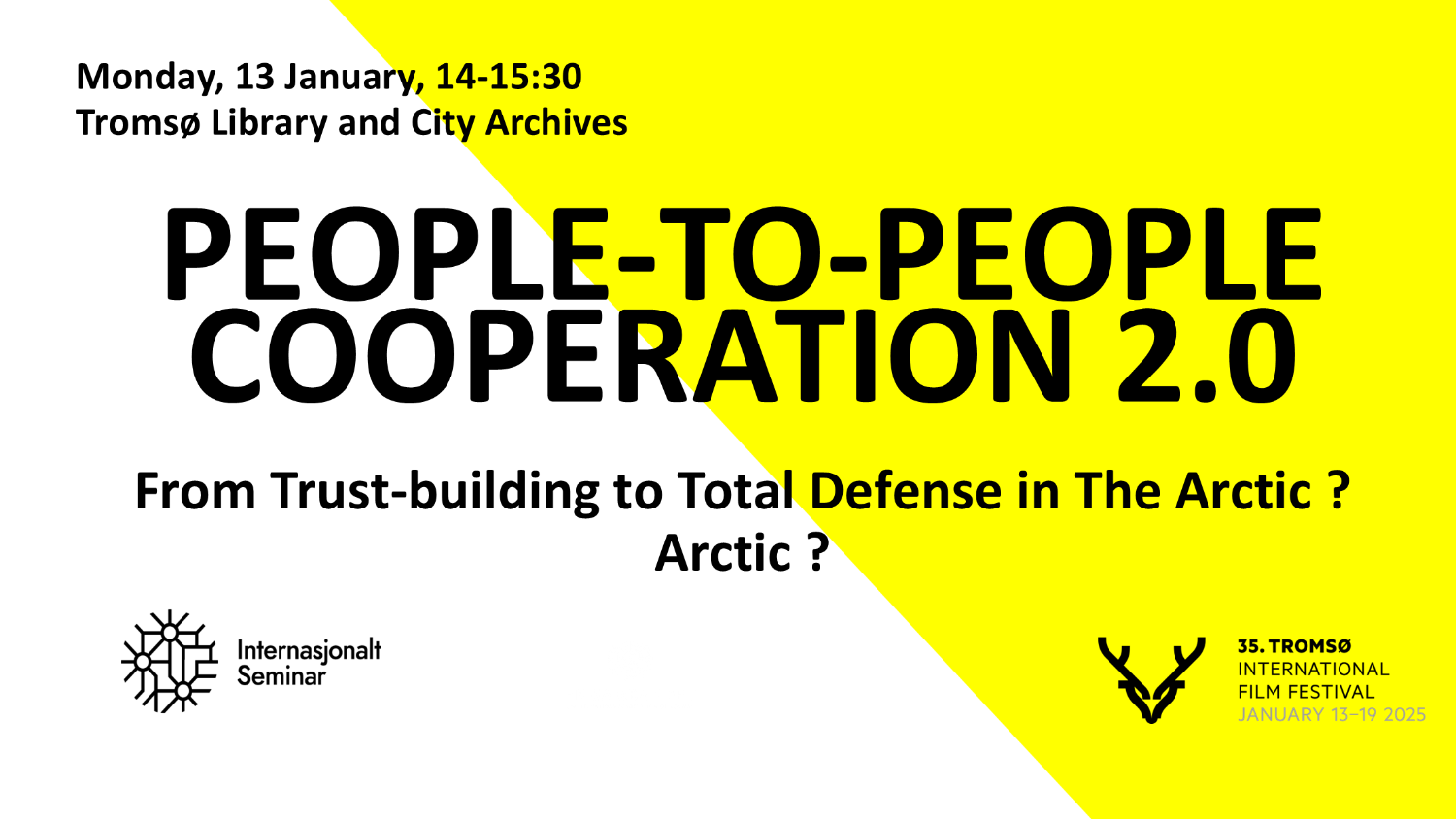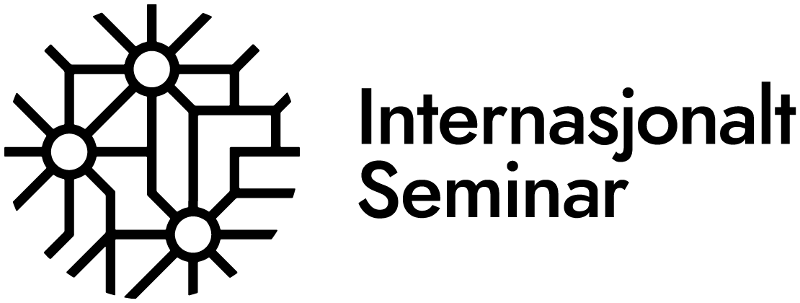Åpent seminar / Open seminar: Folk-til folk samarbeid 2.0 – fra tillitsbygging til totalforsvar i Arktis / People-to-People Cooperation 2.0 – from Trust-building to Total Defense in the Artic


NORSK:
Etter alle de nordiske landene er blitt medlemmer av NATO er militær styrkeoppbygging i Arktis blitt et prioritert mål. Men i hvilken grad vil det samtidig legges ressurser inn i samarbeid mellom sivilsamfunn i arktiske land?
ENGELSK:
After all the Nordic countries have become members of NATO, military build-up in the Arctic has become a prioritised goal. But to what extent will resources simultaneously be allocated to collaboration between civil societies in Arctic countries?
NORSK:
Internasjonalt Seminar er et informasjons- og debattforum i Tromsø, som gjennom foredrag og paneldiskusjoner tar opp nord/sør-problematikk, miljø/klima, fattigdom/utvikling og krig/fred som sentrale tema.
Seminaret har et program med 25-30 åpne møter i året.
På mandag 13. januar vil årets første seminar bli holdt på Tromsø bibliotek og byarkiv fra kl. 14:00 til 15:30. Det skjer som en del av Tromsø internasjonale filmfestival 2025 (TIFF).
Temaet for seminaret er samarbeid mellom folk i Arktis etter Russlands fullskala invasjon av Ukraina.
Før invasjonen var målet med samarbeid mellom folk over arktiske grenser å fremme tillit, redusere konflikter og bryte ned stereotypier i denne strategisk viktige regionen.
I dag er samarbeidet med Russland redusert til et minimum. Selv om samarbeid med uavhengige russiske partnere fortsatt er mulig, er det begrenset av restriktive russiske lover og den generelle sikkerhetssituasjonen. Et unntak er Arktisk råd, hvor noen arbeidsgrupper fortsetter å overvåke klimaendringer over hele Arktis.
I mellomtiden har Barentssekretariatet fått et utvidet mandat til å engasjere partnere over hele det sirkumpolare Arktis.
Med Finland og Sverige som nye NATO-medlemmer i nord, legges det føringer for nært samarbeid hvor et viktig mål er å bygge sterke og motstandsdyktige samfunn i Arktis.
Diskusjonstemaer:
PANEL:
Cecilie Myrseth - Næringsminister
Sajje Solbakk - Festivaldirektør for Riddu Riđđu
Johanna Vehkoo - Journalist og spesialist på hybride trusler fra Helsinki
Kenneth Stålseth - Daglig leder av Barentssekretariatet
Miia Tervo - Direktør for The Missile
MODERATOR:
Amund Trellevik - Norsk journalist og fotograf

Internasjonalt Seminar er støttet av Tromsø kommune og koordineres av FN-sambandet Nord og Seksjon for internasjonalt samarbeid (SIS) ved UiT Norges arktiske universitet.
I tillegg støttes seminaret av Tromsøs humanitære organisasjoner, solidaritets- organisasjoner og studentorganisasjoner.
ENGLISH:
The International Seminar is a forum for political debate in Tromsø, that addresses issues of the North/South divide, environment/climate, poverty/development, and war/peace as central themes through lectures and panel discussions.
The International Seminar has a program with 25-30 open meetings per year.
On Monday 13 January the first seminar of the year will be held at Tromsø Library and City Archives 14:00-15:30. This event is part of the Tromsø International Film Festival (TIFF).
The topic of the seminar is people-to-people collaboration in the Arctic after the Russia's full-scale invasion of Ukraine.
Before the invasion, the aim of people-to-people cooperation across Arctic borders was to foster trust, reduce conflict, and break down stereotypes in this strategically important region.
Today, cooperation with Russia is reduced to a minimum. Although collaboration with independent Russian partners is still possible, it is constrained by restrictive Russian laws and the overall security situation.
An exception is the Arctic Council, where some working groups continue to monitor climate change throughout the Arctic.
Meanwhile, the Barents Secretariat has been given an expanded mandate to engage partners across the circumpolar Arctic. With Finland and Sweden as new NATO members in the north, there is a push for close collaboration to build strong and resilient communities in the Arctic.
Discussion topics:
PANEL:
Cecilie Myrseth - Minister of Trade and Industry
Sajje Solbakk - Festival Director at Riddu Riđđu
Johanna Vehkoo - Journalist and specialist in hybrid threats from Helsinki
Kenneth Stålseth - Managing Director of the Barents Secretariat
Miia Tervo - Director of The Missile
MODERATOR:
Amund Trellevik - Norwegian journalist and photographer

The Seminar is supported by the Tromsø municipality and is coordinated by the UN Association North and the Section for International Cooperation (SIS) at UiT The Arctic University of Norway.
In addition, the seminar is supported by Tromsø's humanitarian organizations, solidarity organizations, and student organizations.